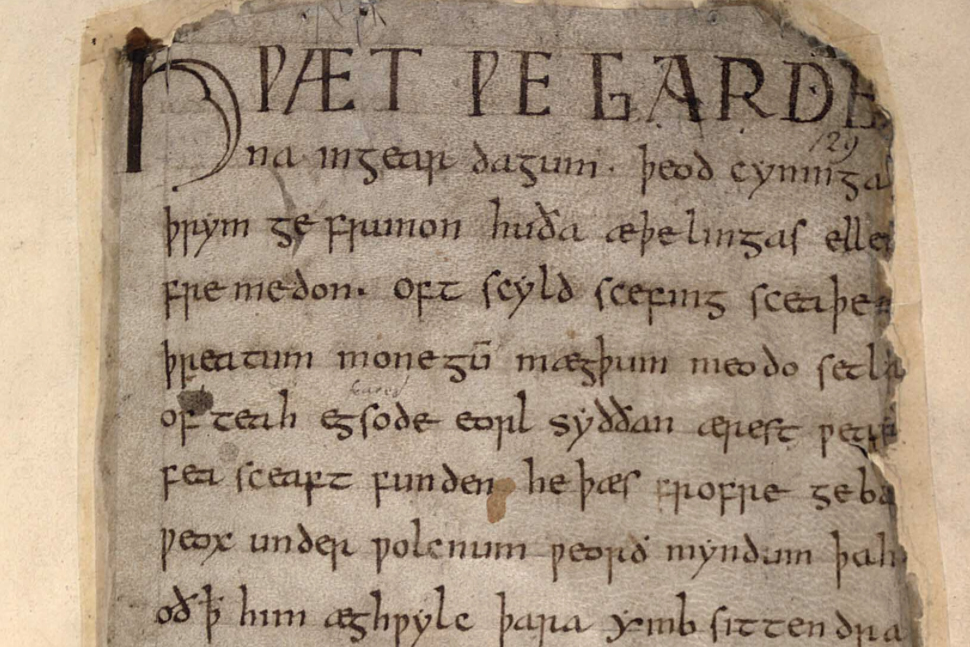Evidence mounts that Beowulf was in all likelihood written in the end of the 7th or beginning of the 8th century, the Time of Bede
The Dating of Beowulf. A Reassessment.
Ed by Leonard Neidorf.
Boydell and Brewer 2014
ISBN: 9781843843870
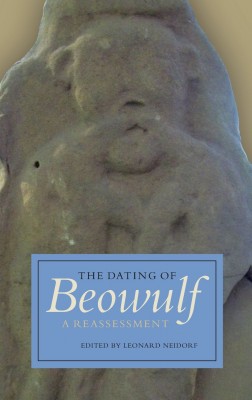 In 1815 the poem, Beowulf, was first published. Since then “few topics in Anglo-Saxon studies have generated as much speculation and scholarship as the dating of Beowulf”, writes Leonard Neidorf in his recently edited volume on the “Dating of Beowulf”.
In 1815 the poem, Beowulf, was first published. Since then “few topics in Anglo-Saxon studies have generated as much speculation and scholarship as the dating of Beowulf”, writes Leonard Neidorf in his recently edited volume on the “Dating of Beowulf”.
Contrary to what might be expected, though, this book is not about the prehistory of this debate. Although we get an overview of the unfolding of this controversies in the 19th and 20th century, we soon grasp that this new book from 2014 is primarily intended to be part in the scholarly debate, which has waxed and waned since 1981, when a conference took place in Toronto, which later came to be known as “The Scandal in Toronto” [1]. At this conference a wide variety of dates for the composition of the poem of Beowulf ranging from the end of the 7th century and well into the 11th were put forward. Whether by evil intent or not, the result was a profound tectonic shift in the understanding of the poem, which through these machinations was handed over to a long series of literary critics of all ilks and genders. Now the time had come to explore the poetic qualities of the poem without having to consider its “Sitz im Leben”, its cultural context or even worse, come to grips with the complicated evidence presented by the linguistic, philological, phonological, palaeographical or metrical experts, who had for a long time plodded ahead trying to understand this enigmatic and beautiful poem in its cultural and historical context. Instead the time had arrived for New Critics to “own the field”. As no one could seemingly present any solid proof for a particular date, but rather “a cautious and necessary incertitude” it became a free-for-all to study the way in which the poem had been received at particular times during the last 1000 years or more. No longer was there “a text in this class”, only shifting audiences. The “effete, latte-drinking, Volvo-driving, Toronto Crowd” got their field day (as characterised by Roberta Frank, one of the organisers).
Luckily, though, the careful plodders – “The Hush Puppies” – continued to rake the earth, studying the diminutive details of such boring elements as etymological lengths, Kaluza’s Law, the confusion and faulty transliteration of letter pairs like d and ð by the scribes and a number of other interesting features. This backlash was led by R. D. Fulk, who slowly gathered steam from 1989 and onwards. In 1992, this resulted in his seminal publication on History of the Old English Meter. Finally, last year, Leonard Neidorf presented a volume with the title: The dating of Beowulf: A Reassessment, which offers a number of very detailed studies presenting overwhelming indices for the date proposed by Fulk based on his linguistic studies. Although not a date-frame, which can ever be finally proven, the different studies in this collection all indicate a reasonable window for the composition of Beowulf from ca. 685 – 750 and probably located in Mercia.
Reading the book, it soon becomes apparent that the careful trudging through all the mud left behind by the literary critics have yielded an impressive, neigh overwhelming, set of arguments, which does not leave much room for post-modern wiggling. To this should be added the nice, understated yet precise way in which the knife has been wrought. In the conclusion by Allen J. Frantzen, we read, “that sooner or later, those who want to argue from external evidence, will have to deal with linguistic, metrical, semantic, onomastic, and palaeographical evidence”. And further: “The literary knowledge emerging from this work will help us see the Anglo-Saxon world anew, a project all Beowulf scholars [should] endorse.”
So-far reviews, although fine, have been few and far-between; and all published in publications catering for the philologists and linguists. Apparently the Toronto-clique has not yet had the time, energy or inclination to mount a proper attack. Or perhaps they have just given up.
This is a magnum opus, which liberates the text for all the “others” – the cultural historians, the archaeologists, the art-historians etc. It suddenly becomes unquestionable to quarry this wonderful mine once more, when trying to understand the world, the poet lived in.
Karen Schousboe
[1] The Conference Papers were published in “The Dating of Beowulf”. Ed by Colin Chase. University of Toronto Press 1981. In 2007 one of the organisers wrote an witty essay on the Scandal in Toronto: The dating of Beowulf a Quarter of a Century on. In: Speculum 82 (2007), pp. 843-64
Table of Contents:
- Introduction by Leonard Neidorf
- Beowulf and Language History by R.D. Fulk (pp. 19-36)
- Germanic Legend, Scribal Errors, and Cultural Change (pp. 37-57) by Leonard Neidorf
- Names in Beowulf and Anglo-Saxon England (pp. 58-78) by Tom Shippey
- The Limits of Conservative Composition in Old English Poetry (pp. 79-96) by Megan E. Hartman
- The Date of Composition of Beowulf and the Evidence of Metrical Evolution (pp. 97-111) by Thomas A. Bredehoft
- Beowulf and the Containment of Scyld in the West Saxon Royal Genealogy (pp. 112-137) By Dennis Cronan
- History and Fiction in the Frisian Raid (pp. 138-156) by Frederick M. Biggs
- “Give the People What They Want”: Historiography and Rhetorical History of the Dating of Beowulf Controversy (pp. 157-177) by Michael D.C. Drout, Emily Bowman and Phoebe Boyd
- A Note on the Other Heorot (pp. 178-190) by Joseph Harris
- Beowulf and Conversion History (pp. 191-201) by Thomas D. Hill
- Material Monsters and Semantic Shifts (pp. 202-218) Rafael J. Pascual
- Scandals in Toronto: Kaluza’s Law and Transliteration Errors (pp. 219-234) by George Clark
- Afterword: Beowulf and Everything Else (pp. 235-248) by Allen J. Frantzen
READ MORE:
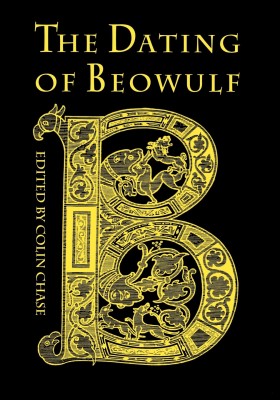 The Dating of Beowulf
The Dating of Beowulf
by Colin Chase (Editor)
Series: Toronto Old English Studies
University of Toronto Press
ISBN-10: 0802078796
ISBN-13: 978-0802078797
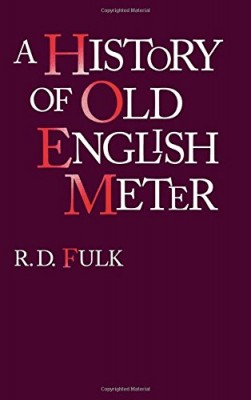 A History of the Old English Meter.
A History of the Old English Meter.
By Robert D. Fulk:
University of Pennsylvania Press 1992
ISBN-10: 0812231570
ISBN-13: 978-0812231571
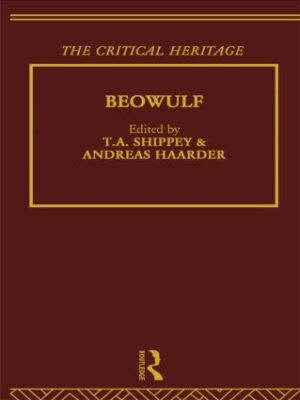 Beowulf: The Critical Heritage
Beowulf: The Critical Heritage
By: Andreas Haarder and T. A. Shippey
Routledge 2005
ISBN-13: 978-0415029704
ISBN-10: 0415029708
